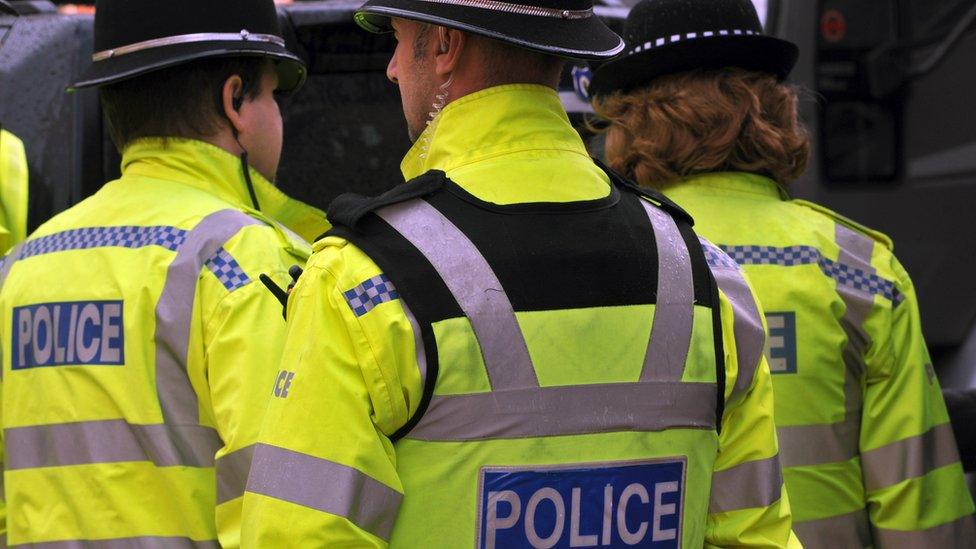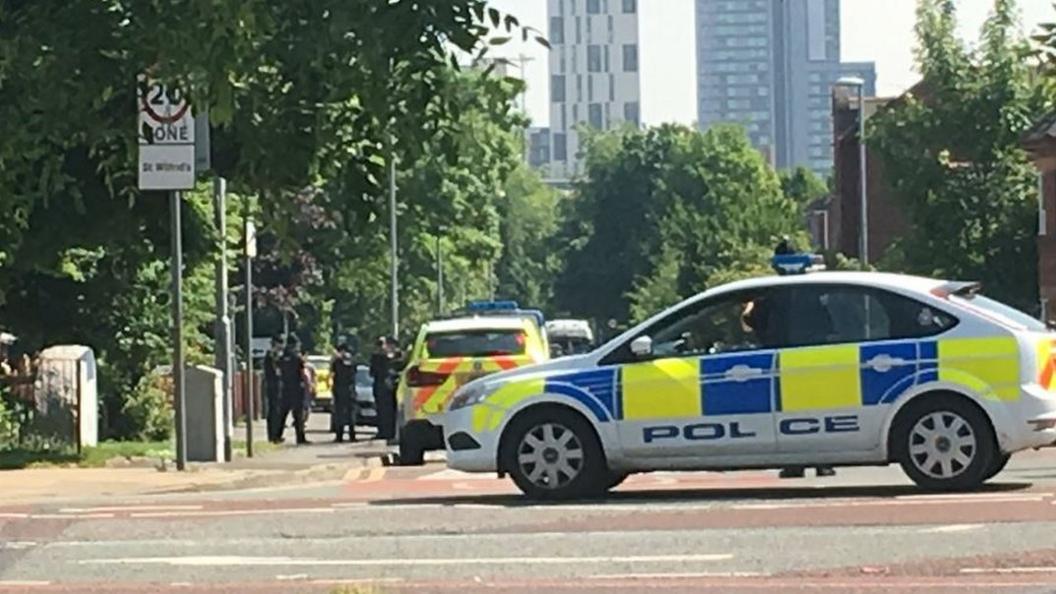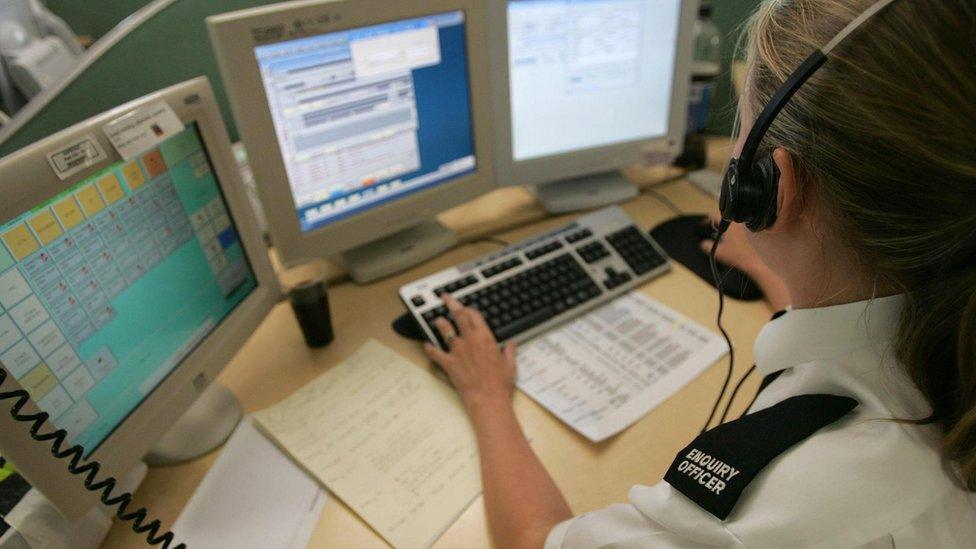Police can take days to respond to 999 calls, says report
- Published
Zoe Billingham tells the Today programme police are struggling with demand
Some victims of domestic violence and other serious crimes have to wait days to be seen by police officers because 999 calls are not getting a prompt response, a report has found.
The Inspectorate of Constabulary said a quarter of forces in England and Wales were often "overwhelmed" by demand.
The annual review found instances of police taking days to respond to calls that should be acted on within an hour.
Police chiefs said increases in demand had put policing under "real strain".
Her Majesty's Inspectorate of Constabulary and Fire & Rescue Services' (HMICFRS) annual assessment of police effectiveness said most police forces were doing a good job and keeping the public safe.
However, the report said it was concerned that vulnerable victims were "too often" not getting a prompt emergency response.
Thousands of 999 calls assessed as requiring action within 60 minutes were not dealt with for hours or, in some cases, for several days - mainly because officers were not available to respond.
In Cambridgeshire, for example, inspectors found the average time it took for police to respond to a 999 call during September last year was 15 hours.
Victims 'at risk'
Inspectors said they were concerned by the findings because it showed the system was "under severe strain and in some forces the cracks are showing".
Zoe Billingham, the Inspector of Constabulary, told Radio 4's Today programme that some callers, such as domestic abuse victims, were being "put at risk".
But she said the report needed to be put into context, highlighting last year's terror attacks and a significant increase in calls from victims of domestic abuse as factors in a "massive increase in demand" on forces.
Out of 43 police forces, only Durham Constabulary was ranked as outstanding.
It found that "life and limb" and "crime in action" cases were generally dealt with quickly.
But the report criticised the standard of investigations into crimes such as robbery, burglary, car theft and assault.
It said officers frequently failed to carry out house-to-house enquiries, gather CCTV evidence and use their body-worn cameras.
The National Police Chiefs' Council said it was working with forces to boost their detective numbers and specialist capability to help them manage and reduce demand.

Analysis
By BBC home affairs correspondent Danny Shaw

Read the opening paragraphs of the Inspectorate's report and you'd think all was well in policing.
"We congratulate police officers and staff on the way they have largely kept standards high," it says.
Delve a little further, however, and it becomes clear that a dramatic surge in demand (crimes, calls and emergencies) and a long-term reduction in resources are leaving parts of the service severely stretched.
This in turn is putting people's safety at risk, with delays responding to 999 calls the clearest manifestation of the problems.
Nevertheless, some forces cope better with the pressures than others, suggesting that good leadership and effective ways of working are as important as funding.
The most notable example is Durham Constabulary, which has been graded "outstanding" in each of the last three years - the only force to have achieved that ranking.

Sara Thornton, chair of the National Police Chiefs' Council, said the report found the police provided a good service overall but that "increases in demand are impacting on forces' ability to meet standards in some important areas".
She said: "In the last year, policing has been under real strain with rising crime and demand that is more complex, an unprecedented terror threat, and officer numbers at 1985 levels."
Labour MP Yvette Cooper, chairwoman of the Commons Home Affairs Committee, said the findings show "a deeply serious strain" on our emergency service.
She said: "For 999 emergencies to go without a response for hours or even days is shocking and deeply distressing for victims, and undermines public safety and the fight against crime."
- Published2 March 2017
- Published7 February 2018

- Published9 November 2017
